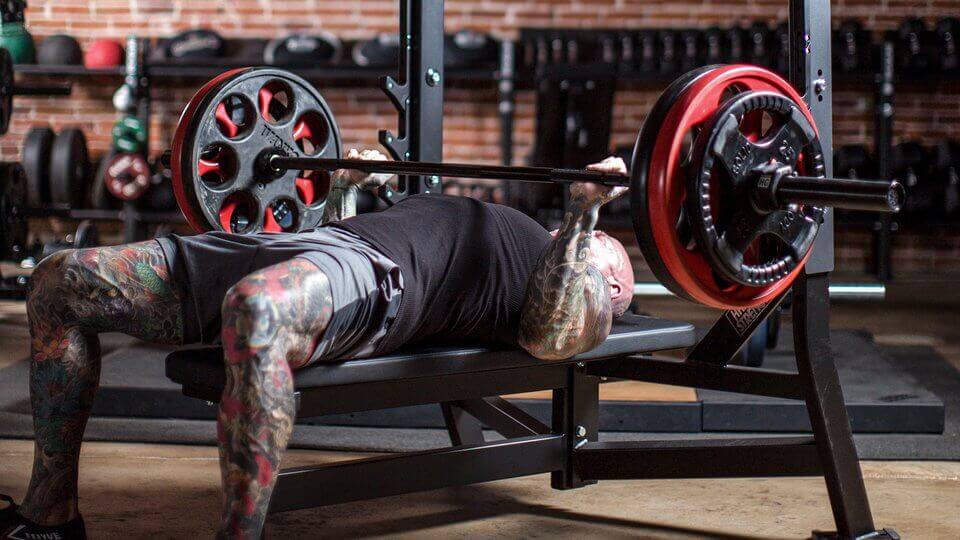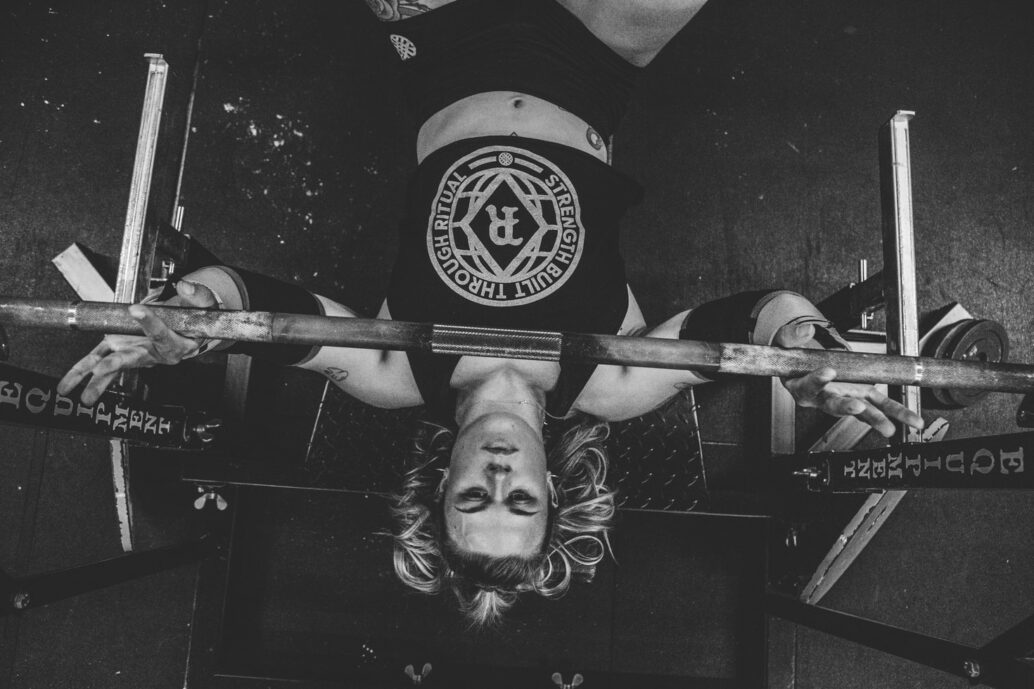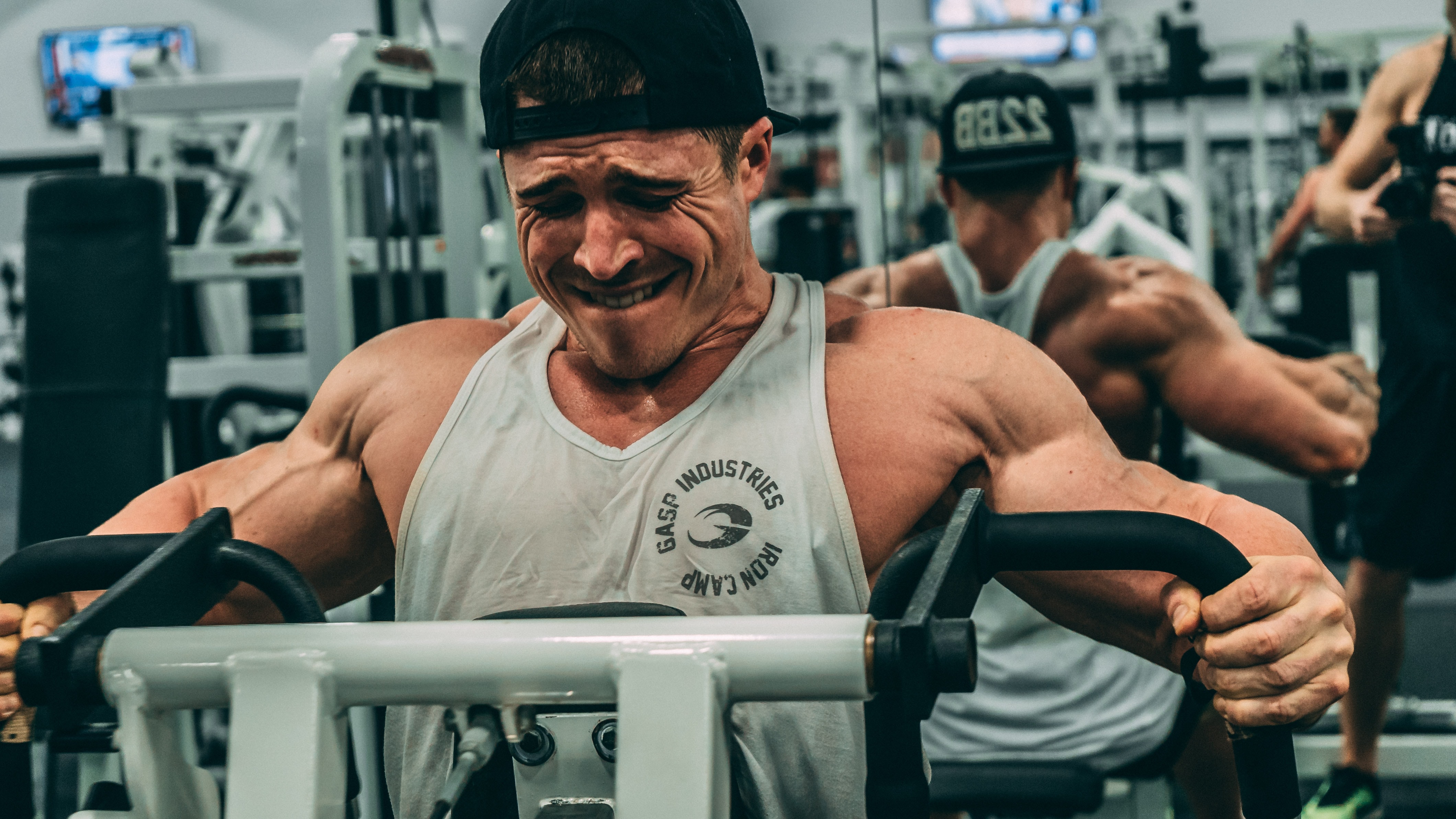You might be wonder what is a good weight to bench press? Well, bench press is the most used workout by Mens for training their chest muscle. So what is the best wait for benching? This varies from person to person.
Yes, benching your own bodyweight might be good for you but it depends on your fitness goals, age, the level of strength and the level of training.
If you’re youngerster (12 – 15 years old) then it’s recommended to be benching your own bodyweight. This is because your muscle and bones are weak and they are not developed properly. If you’re benching weight over your bodyweight and finding it very hard then you’re more likely to injury yourself. Not only that, you may stun your growth. Therefore, it’s best to keep your ego aside and increase the weight slowly over time.
If your’re a new to benching then it’s recommended to be benching less then your own bodyweight. This is because your are very likely to not developed upper body strength. Remember bench press is a compound movement meaning it requires your shoulders, chest, arms and core inorder to perform it. Over time, you will be developing strength in your upper body and increasing your benching.
If your aim is to build muscle then it’s recommended to be benching your bodyweight but increasing it over time if your can do 12 reps. In order to build muscle you need to make sure to workout the muscle till the muscle tissues are torned up and then recovered. This will build more muscle on the targeted muscle.
If your aim is to do strength training then it’s recommended to be benching more than your own bodweight. To grow strength you will need to push harder meaning you will need to be benching heavy weight with less reps and more resting time between sets. Make sure you have a spoter when doing heavy bench presses as you injure yourself. Also, wear protective gear like wrist band and elbow band because if the weight is too heavy then you injure your joints.
How to Get Stronger at Bench?

There are soo many factors which comes in to getting stronger with Bench. In order to get stronger at Bench you need consider the following factors below.
- Reps/Sets
- Diet
- Amount of Training
- Rest time
- Supplements
Reps/Sets
Reps and Set are really important when it comes to strength training. As well all know the heavier the weight the harder it is to perform an exercise. Therefore, right amount of reps/sets is necessary with right amount of rest between sets.
For Benching, load a heavy/meduim weight, you need to perform anywhere 3-8 reps and then take 3-5mins for rest then perform again for 3-5 sets. This reps/sets will help you get stronger. So over-time you will be increasing strength.
Diet
In order to grow muscle and strength, diet is very important. You need to make sure you eat Nutrient-Dense Foods, Healthy Snacks, More protein intake, Drink Calories and more. Read Correct Diet for strength and muscle growth in more detail.
Amount of Training
To gain more strength at Benching then training regularly is necessary. It’s recommend to train your chest muscle two times in a week. Also, focus more on the push exercises as push movement is used when benching.
Rest time
One of the most underrated thing in fitness industry is resting. Only way to grow muscle and strength is by resting and letting your muscle repair. Some day we can lift more and some days we can’t. We all have experience that and that is mainly because of the lack of rest which means your muscle is more fatigue.
How much Should Women Bench?

This depends from person to person as we all are different to each other. However, it is recommended to lift your own body weight for women. If your totally new to benching then do it with no weights just the bar itself as you will have less upper body strength.
| Category (Women) | Bench Weight |
| Beginner | No weight just the bar |
| Intermediate | Own bodyweight |
| Advanced | 1.5 x your bodyweight |
What Muscles are used when Bench pressing?
Bench press is a compound move that uses your own bodyweight to target the upper body muscles. It’s best to know which muscle is being targeted, which are:
- Chest muscles (pectorals) – Primary
- Shoulders (deltoids)
- Triceps
- Serratus Anterior
(Check more info on the muscle group)
How To Bench Bodyweight?
Benching your body weight can be hard for some people. But there is no need to worry as you can do by first strength your upper body. Benching is a push movement so its best to perform push and chest muscle exercises.
Perform the following exercise for a month and you will see a difference in your strength when benching.
- Push ups
- Shoulder press
- Dips
- Dumbbell Bench Press
- Chest Flys
- Deficit Push-Ups
- Overhead/Strict Press
- Band Pull Aparts/Reverse Flys
- Front and Lateral Raises
After your comfortable benching with some weight then over time you will need to increase your weight slowly. You will get stronger and keep increasing the weight until its same as your own bodyweight.
Why Can’t I bench my Bodyweight?
Benching is a compound movement exercises so if you can not bench you own bodyweight then it shows your upper body is weak as well as your chest muscles. In some cases diet and also take a factor because poor diet will not help build muscle strength to perform bench press.
How long will it take to bench Bodyweight?

Well, this varies from person to person. For beginners, it could take up to 6 months as you will have to develop the upper body and chest muscle strength. For regular fitness person, it could take up to 1-3 months as the process will be quicker.
How to Improve your Bench Press?

Now that you’ve read about the average bench pressing for beginner, novice, intermediate, advanced, and elite levels, here are some tips that can help you transition from one level to the other. Remember, it is not just about increasing your weights steadily, but improving your upper body strength takes a combination of a lot of other factors, including your nutrition intake.
Scale-up Gradually
It is important that you understand that once to take up strength training, there should not be any immediate expectations. It takes time to see results because the strength is built up gradually. Therefore, at least a period of 12 weeks at each level is necessary to ensure that you are moving at the right place.
Consistency is Key
Consistency is the key to achieving your fitness goals. Whether it is weight loss or muscle building, you should stay consistent. Otherwise, it does not take long for your muscles to unlearn what you have worked hard for. Small gaps in between can be covered. But month-long or year-long gaps are not good for retaining your muscle strength, nor will they help in transitioning to higher levels of training.
Eat Right
You must include foods in your diet that build lean muscles. This includes healthy carbs, proteins, and fats. You could include eggs, fish, chicken, and milk in your diet which would really help you to improve your workout and increase your strength. Also, plenty of fruits and vegetables are necessary to ensure that you are getting the fibre and organic nutrition that you need.
Also, you should ensure that you drink enough liquids before, during, and after the workout. This would assure that all that exercise does not dehydrate you.
Use Appropriate Form
You must be using the correct form to get the maximum benefits from this classic exercise routine. The good form is pressing your feet onto the floor, arching the lower back, and pressing your glutes and shoulders onto the bench.
Also, overexerting yourself and pushing to lift beyond your limits is unhealthy too.
Vary your Training Routine
It is important that you don’t only stick to one kind of exercise. Target your whole body so you can increase your flexibility. This includes involving yoga and aerobic exercises, which help increase your endurance.
Also, between weightlifting sessions, it is important to take breaks in between. You need at least one full day of resting for major muscle groups so you don’t overexert yourself.
It is also important that you practice correctly inhaling and exhaling techniques. You should exhale when lifting the weight and inhale as lowering it down.
Work with a Trainer
As stated, all of these figures of the weight that you should lift according to your weight and age level are averages. It is important that you have a trainer who can help you in following a program consistently as well as develop a workout that is most efficient for you.
Trainers can make sure that your body is positioned rightly, so you avoid any injuries to your body and muscles. Slight-off angles can be noticed by a trainer only.
They also give the moral support that you might need to push for that goal.

